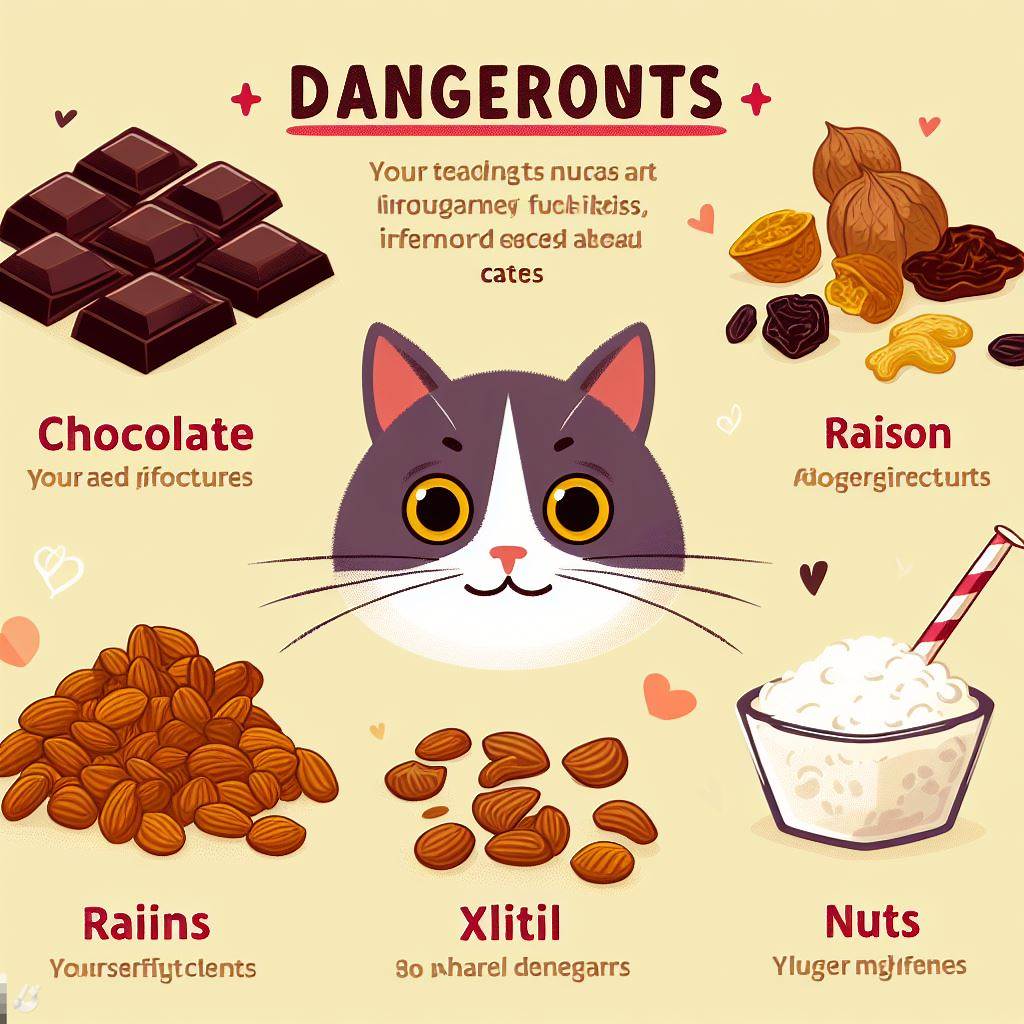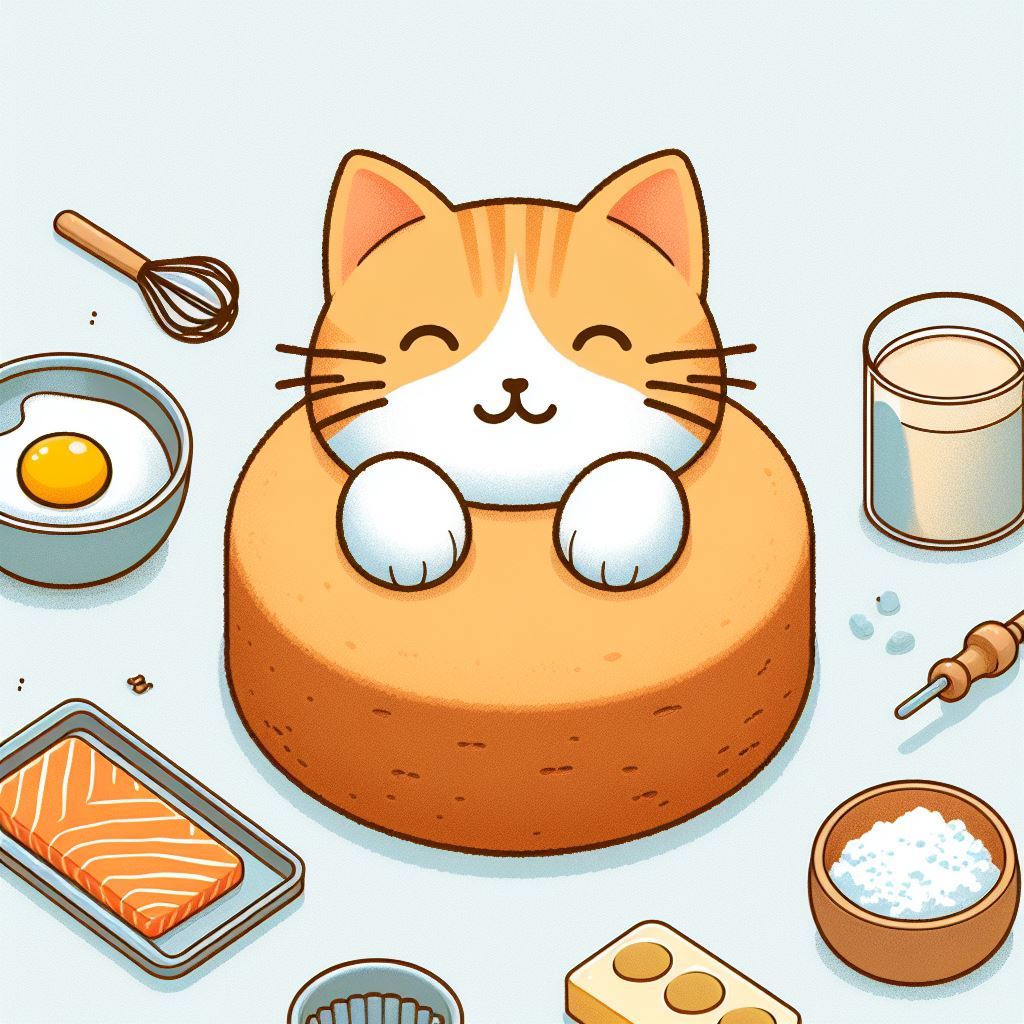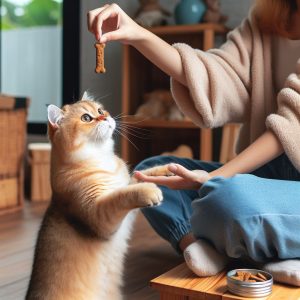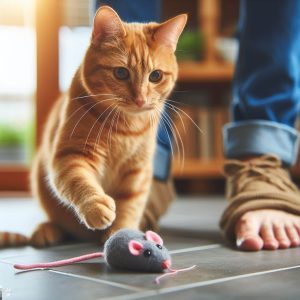The cake is a beloved dessert for humans, but is it safe for cats to indulge in? With enticing flavors and textures, the cake may seem like an ideal treat for our feline friends. However, not all cakes are created equal when it comes to cats. Certain ingredients found in typical cakes made for people can actually be toxic to cats.
Conversely, with the right ingredients and precautions, small amounts of customized cake can be a special snack for kitty on occasions like birthdays or holidays. This guide will examine the safety concerns, nutrition, and tips for ways cats can enjoy cake based on expert research.
Dangers of Regular Cake for Cats

Standard cakes made for human consumption often contain ingredients that can cause illness in cats. Here are some of the top hazards to be aware of:
Chocolate
Chocolate is poisonous to cats due to its containing methylxanthines like theobromine and caffeine. When eaten, these compounds can cause vomiting, diarrhea, panting, excessive thirst and urination, hyperactivity, abnormal heart rhythm, tremors, seizures, and even death in cats. Darker chocolate contains higher toxic concentrations. Even small amounts can be dangerous, so chocolate cake and frosting should always be avoided.
Citrus Fruits and Oils
The citrus fruits and oils used to flavor many cakes, like oranges, lemons, and lime, are toxic for cats. The citronellal in citrus oils and acids in the fruits themselves can cause drooling, vomiting, diarrhea, depression, tremors, and central nervous system damage in felines when ingested.
Nuts
Tree nuts like walnuts, almonds, pecans, and pine nuts are common additions to cakes, but they can trigger gastrointestinal upset or even life-threatening anaphylaxis in cats with allergies. Avoid cakes with any type of nut sprinkled on top or baked inside.
Raisins and Currants
Raisins or currants in cake can potentially lead to kidney failure in cats, even in small doses. Experts still don’t know the exact mechanisms behind this effect. But all forms of grapes and raisins, even organic ones, should be kept far away from cat treats.
Xylitol
Many baked goods, including cakes, contain the artificial sweetener xylitol to reduce sugar and calories. However, xylitol is extremely toxic to cats and can cause a dangerous insulin spike along with hypoglycemia, seizures, liver damage, and even death rapidly after ingestion.
High-Fat Content
The rich butter, oils, eggs, and cream used to make the cake moist and delicious also make it high in dietary fat. Too much fat at once can lead to an inflamed pancreas (pancreatitis) causing abdominal pain, vomiting, diarrhea, and loss of appetite in cats.
Healthier Homemade Cake Options for Cats
While conventional cakes are too risky, there are ways to make specialized cakes at home with ingredients that are safe for cats to enjoy. Here are some guidelines:
- Use alternative flour like chickpea, rice, or whole wheat flour instead of regular all-purpose flour. Avoid nut-based flours.
- Substitute applesauce or pumpkin for some of the butter or oil to reduce the fat percentage.
- Swap cocoa powder for carob powder which does not contain theobromine.
- Avoid citrus fruits or oils. Berries make a good topping instead.
- Skip the frosting as it adds unnecessary fat and sugar. Or make a reduced-fat version.
- Sweeten lightly with honey instead of sugar. Never use xylitol or artificial sweeteners.
- Stick to cat-friendly proteins like cooked egg, salmon, turkey, or chicken as mix-ins.
- Use minimal low-fat dairy like yogurt or small amounts of cheese. Many cats are lactose intolerant.
- Add supplements like cat grass powder or nutritional yeast for extra nutrients.
- Keep portions tiny, like a tablespoon or two max, and only feed on rare occasions.
Is Cake Nutritious for Cats?
Plain cake ingredients like wheat flour, milk, eggs, and fat do not provide optimum daily nutrition for cats on their own. Cats are obligate carnivores, meaning they need a diet primarily of meat-based proteins. The nutrients cats require include:
- High levels of protein from meat, poultry, or fish
- Moderate fat, ideally from animal sources
- Very few carbohydrates as cats have limited ability to digest carbs
- Adequate vitamins and minerals like taurine, calcium, phosphorus
- Moisture-rich foods as cats have low thirst drive
Commercial cat food carefully formulated with this nutritional profile is the healthiest choice for cats day to day. Homemade cakes for cats should only be occasional treats at most, not a dietary staple. Stick to cat food for balanced everyday nutrition.
Health Risks of Cats Eating Too Much Cake
Feeding cake too frequently or in large portions can negatively impact a cat’s health and well-being over time. Potential risks include:
- Obesity: The dense calories of cake can quickly lead to weight gain in cats. Obese cats are prone to diabetes, joint problems, heart disease, and more.
- Gastrointestinal issues: Too much cake can upset a cat’s stomach or intestines causing diarrhea, constipation, vomiting, gas, or loss of appetite.
- Pancreatitis: High-fat foods like cake can inflame the pancreas and be extremely painful. This requires emergency vet treatment.
- Tooth decay: Cake’s sugar content promotes bacteria growth causing cavities, gum inflammation, and tooth loss if dental hygiene is neglected.
- Nutritional imbalance: Relying on cake lacks the protein, vitamins, and minerals cats need from quality cat food.
- Behavior issues: Being fed people food routinely can contribute to begging, territoriality, and other problem behaviors in cats.
For the best chance at a long healthy life, cats should eat a balanced commercial cat food diet with occasional cat-safe treats like homemade cake no more than once or twice a month. Moderation and proper nutrition are key.
Warning Signs of Cake Poisoning in Cats
Eating cake with ingredients that are toxic to cats, like chocolate, xylitol, or raisins, constitutes a poisoning emergency requiring immediate vet attention. Poisoning symptoms may include:
- Vomiting/diarrhea
- Lethargy/weakness
- Hyperactivity/restlessness
- Increased thirst and urination
- Drooling
- Tremors/seizures
- Abnormal heart rate
- Trouble breathing
- Collapse
If you see these signs after your cat ate cake, take them to the vet right away. Timeliness is critical for successful treatment and preventing any long-term damage. Be prepared to state what type of cake they ate and the ingredients. Make sure your vet is aware of any existing health conditions. With prompt care, many cats fully recover after cake poisoning incidents.
Can Kittens Eat Cake?
Kittens under 1 year old have even more sensitive digestion and greater vulnerability to toxic ingredients than adult cats. Their growing bodies also have higher calorie needs from nutritionally balanced food. For these reasons, it’s best to completely avoid feeding cake to kittens who should instead eat only kitten-formulated cat food and treats. Any deviation from their diet requires vet approval. Once cats reach maturity at 1 year, small bites of cat-safe cake on rare occasions can be considered. But kittens and cake absolutely do not mix.
Homemade Cat Birthday Cake Recipes
Want to make your cat’s next birthday special with a mini cake just for them? Here are a couple of safe, cat-friendly cake recipes to celebrate the occasion:
Tuna Cake
- 1 can tuna, drained
- 1 egg
- 1⁄4 c chickpea flour
- 1 tbsp honey
- 1 tsp cat grass powder
Preheat oven to 350°F. Blend tuna, egg, flour, honey, and grass powder until smooth. Pour into greased mini loaf pan and bake 20 minutes until set. Cool completely before serving. Frosts with mashed banana or yogurt.
Salmon Cake

- 3 oz cooked salmon, flaked
- 1 egg
- 2 tbsp whole wheat flour
- 1 tbsp plain Greek yogurt
- 1 tsp catnip
Preheat oven to 350°F. Mix salmon, egg, flour, yogurt, and catnip in a bowl. Pour into mini muffin tins and bake for 15 minutes. Let cool before removing from pan and topping with yogurt “frosting“.
These cakes provide balanced nutrition from cat-appropriate ingredients. The small serving size makes it a safe birthday indulgence. Make sure cake is just a rare treat, not a daily habit.
Tips for Safely Giving Cake to Cats
If you want to share a taste of cake with your feline friend, follow these tips to reduce risks:
- Verify the cake contains no toxic ingredients for cats – no chocolate, citrus, xylitol, raisins, or nuts. Read labels carefully.
- Stick to plain cake with minimal frosting to limit fat, sugar, and additives.
- Offer your cat only a tiny piece, about 1-2 tsp max at a time. Too much risks stomach upset or pancreatitis.
- Introduce new foods slowly and watch for any symptoms of an allergic reaction.
- Avoid cake if your cat has medical issues like diabetes, kidney disease, or food allergies. Check with your vet.
- Never leave cake unattended so your cat can’t gobble up more than their small portion. Refrigerate or put away leftovers immediately.
- Always provide ample fresh water so your cat stays hydrated.
- Brush cat’s teeth afterward or use dental treats to prevent cavities from cake sugars.
- Stick to special occasions only. Do not make cake a regular thing or use it as incentive/blackmail which can trigger behavior issues.
With vigilance and moderation, occasional cake can be shared safely between you and your cat. But daily cat nutrition should come from quality cat food, not human desserts.
The Bottom Line: Can Cats Eat Cake?
In summary, a regular cake made for people is generally unsafe for cats to eat due to ingredients like chocolate, raisins, and xylitol that are toxic to cats. A few small bites of plain cake on rare occasions may be ok for some cats, but consult your vet to be safe especially if your cat has any health conditions. For the best nutrition and well-being, cats should primarily eat commercial cat food formulated for their needs. Homemade cakes for cats can only be an occasional treat in tiny portions. Focus on providing a balanced cat diet, and leave cake for the humans to enjoy! With prudence and moderation, cats can safely partake in the cake fun on their birthdays or holidays.




